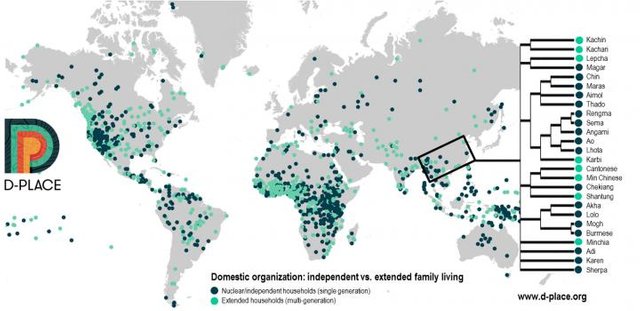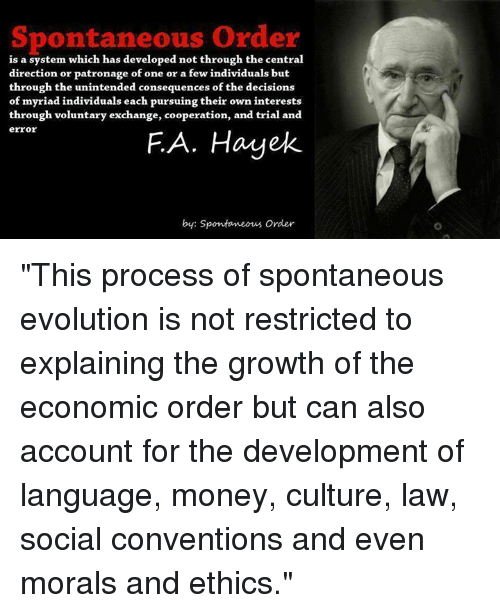Our Software Evolves much as our Genetic Hardware does
Unraveling Transitions in Human Cultural Evolution
Researchers working at the Max Planck Institute for the Science of Human History recently published an interesting study entitled Cultural Macroevolution Matters, in the Proceedings of the National Academy of Sciences (USA) or PNAS for short. They make the case that analyzing vast data sets about different human cultures can reveal trends and transitions in human culture over the past several thousand years. This Press Release gives a less technical overview compared to the original article. Here I’ll summarize briefly and go on to some broader implications.
Some of the tools they used to analyze these vast data sets were developed for analyzing the huge amounts of genetic data made available by recent advances in genetic sequencing. Just as changing natural environments drive the evolution of species, human cultures have changed as human populations grew and our networks of interactions became more complex. However, more than the similarities in the tools used to analyze the data, the similarities in the processes and patterns of evolution are fascinating!

Using a large data set covering many areas of the world over many centuries, the authors of the study examined patterns in the organization of family life. Different patterns of family organization are advantageous depending on the size and density of the population, because these determine the number of individuals in a typical person’s network of interactions.
Life’s Software Evolves too
Just as biological evolution operates via Natural Selection to adapt the genetic Hardware of species to environmental conditions, it has long been recognized that selection also alters the Software of animal species, particularly for social animals such as humans. Animals alter their patterns of organization, interactions, and overall behavior, by learning and sharing information. This can happen within a generation, although major cultural shifts often seem to require at least one generation.
An example from the culture of Modern Science
After working in natural science for about 20 years, I have come to appreciate that this also applies very much even to the culture of scientists. In many cases it takes years of work to gather sufficient evidence, analyze it, and finally to get a large fraction of scientists in some field of study to change their opinions. This rather cynical quote, attributed to the pioneering physicist Max Planck sums it up quite well:
”A new scientific truth does not triumph by convincing its opponents and making them see the light, but rather because its opponents eventually die, and a new generation grows up that is familiar with it"
”A new scientific truth does not triumph by convincing its opponents and making them see the light, but rather because its opponents eventually die, and a new generation grows up that is familiar with it"
Nevertheless, over the past few hundred years scientific knowledge has advanced far faster than natural selection could ever change the human genome! Besides that, there are many recent and historically well-documented examples of human culture, including economic and political organization, changing far more quickly than human genetics ever could.
A General Principle: Complex Systems Adapt

The economist and Nobel laureate Friederich A. Hayek, who coined the term Spontaneous Order, emphasized that the great success of humans as a species has resulted largely from our ability to quickly adapt our culture.
This all happens quite naturally, without any committees, legislatures or politburos composed of select individuals vested with special authority.
Even though the specific mechanisms that bring about adaptive changes in culture differ from the genetic mechanisms that bring about changes in the genome, the common theme remains:
Function is altered because certain changes confer advantages to the species.
Politics lags Culture
This is a closely related idea that I’ve heard and read quite a lot over the past year. I find it somewhat encouraging to think that no matter what the politicians and bureaucrats may want to do, they cannot control human culture. That’s because our culture is ultimately a result of the actions and choices of so many individuals.
Here Jeff Deist makes the case that ultimately politics will be subordinated by culture, and that this is at least somewhat encouraging.
As another example, here’s an interview with Scott Rasumusen, giving his take about how politics follows culture.
S. Lan Smith
Kamakura, Japan
July 30, 2017
Excellent article!
Could I ask for your help? I saw you commented on a post last year about mining steem on a mac! I downloaded the files from github - I ran steemd Unix executable after entering my details: WIF key in terminal but i do not think i am doing this correctly. Could you advise me what i doing wrong?!
I would be hugely grateful
Also i very much like your content so will follow you and upvote/resteem your work.
All the very best
@icedrum
Thanks for the positive feedback!
I may well have commented on a post about mining, but I have not actually done any mining. So, sorry, but I cannot be of any real help for that.
Best,
lanimal
Hi lanimal,
Thank you very much for your reply nonetheless - mining does look like an excellent way of making some steem on the side! ... IF i am successful i will surely post about it!
Thanks for your time - Keep well